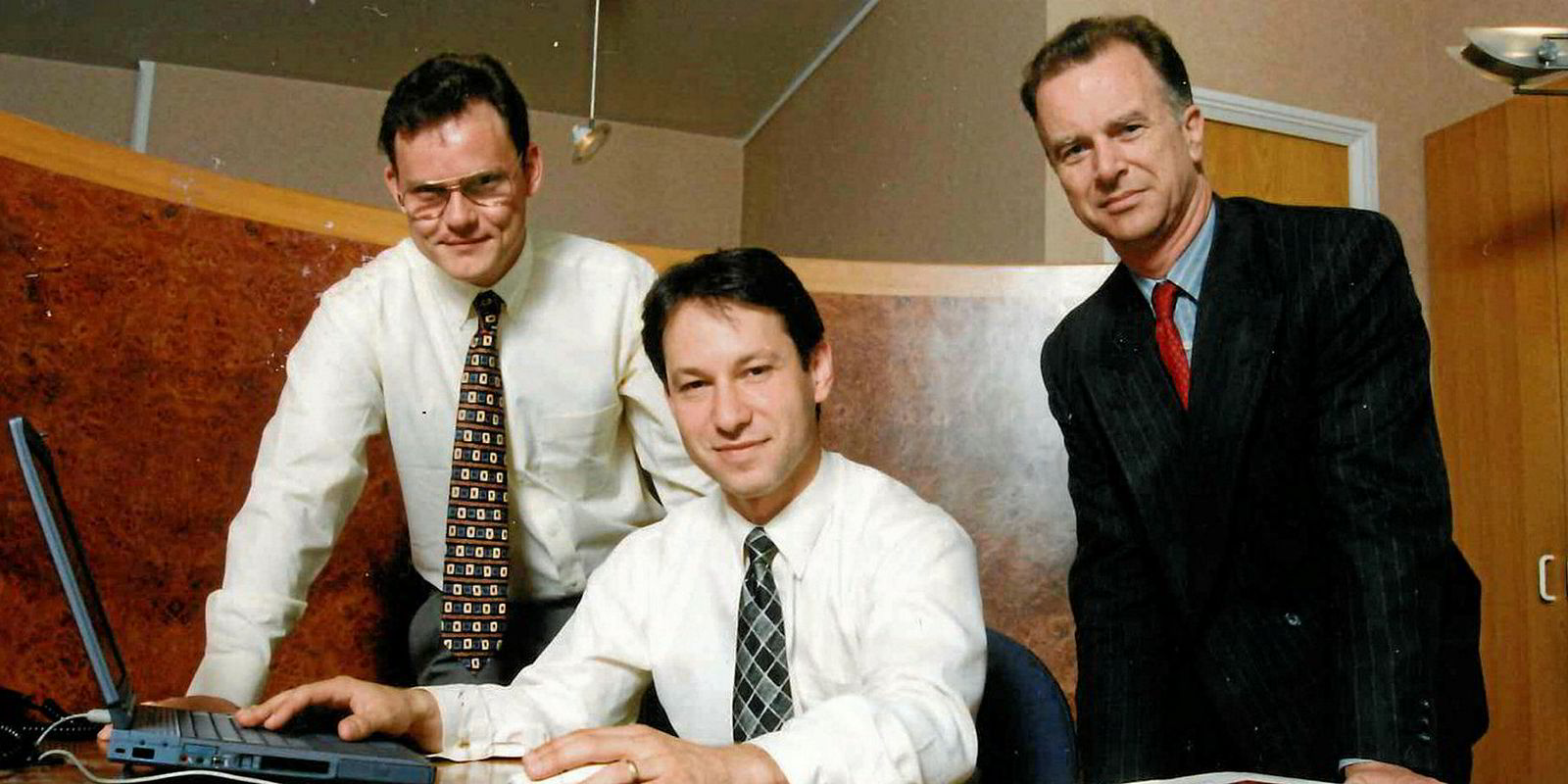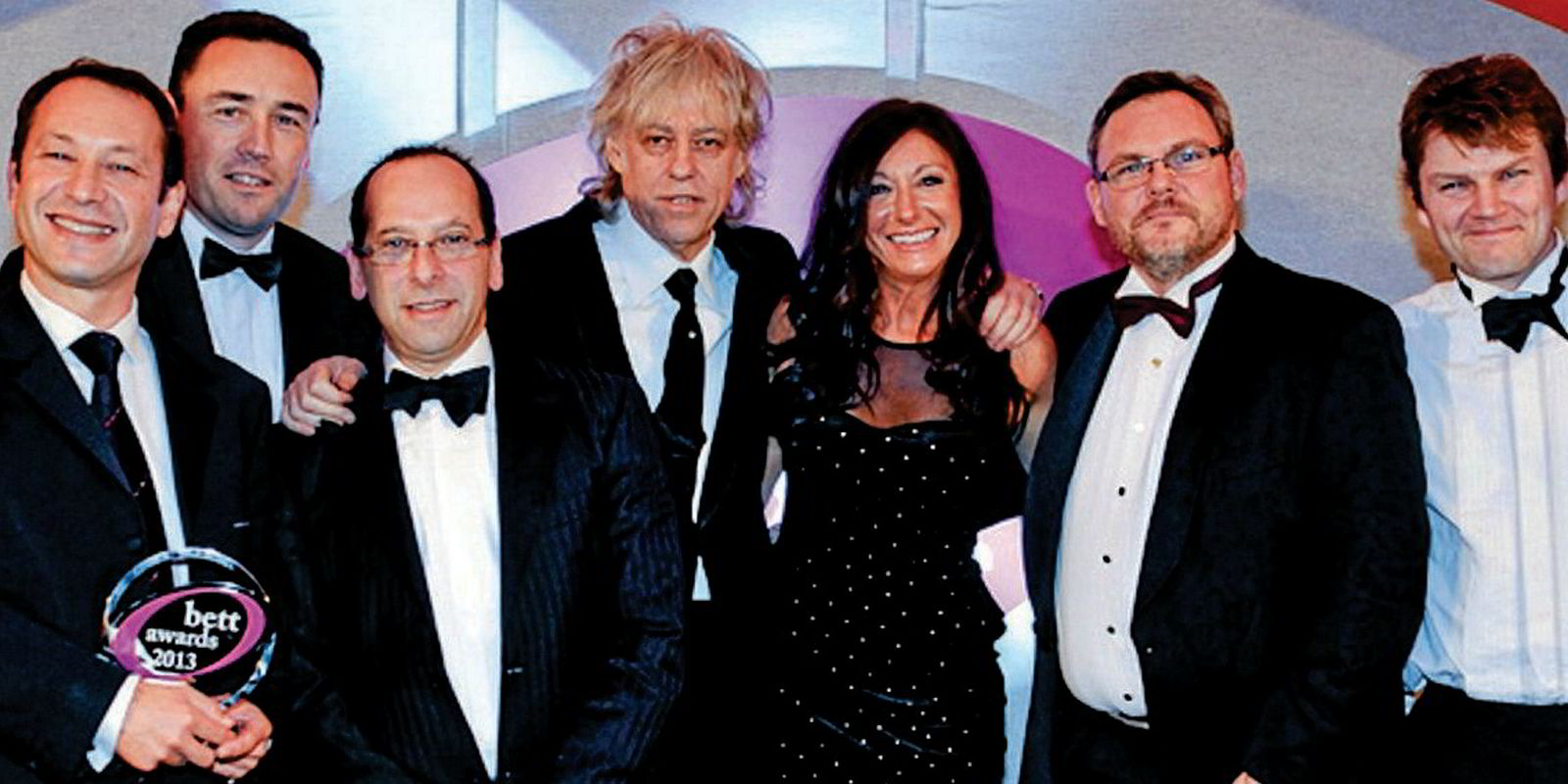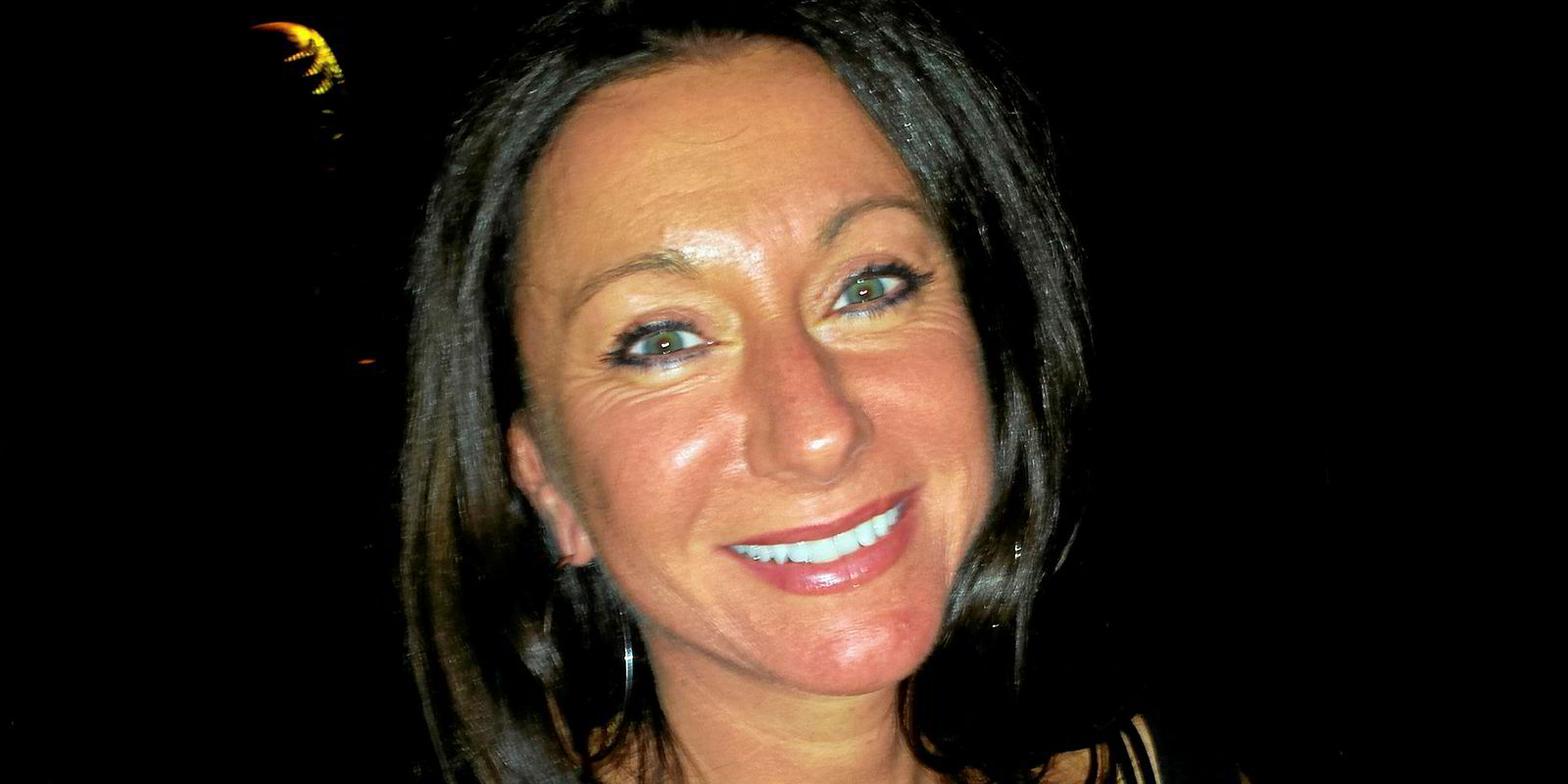What’s the link between messaging for shipbrokers and schoolchildren? No, the answer is not that they are all a bunch of kids at heart, it’s Lawrence Royston.
Royston quit shipbroking communications technology in late 2001, a few months after his company Dataworks was bought out for more than £1m ($1.3m at today’s exchange rate) by bigger rival Strategic Software. His next step was to form another firm providing messaging services for schools.
Groupcall, set up and owned equally by Royston, his wife Joanne and another broking tech exile, Alex Felton, has gone on to build several messaging and data-management products for the education world. It is now about five times bigger than Dataworks ever was.
Dataworks was founded in the pre-internet days of 1992 when Royston, Felton and John Rolfs left Strategic because they believed the future for shipbrokers’ messaging and data integration tools lay with Windows-type technology. At that point, David Marais, who headed Strategic, did not.
The two companies split the market, with Dataworks winning its biggest customers in medium-size broking shops Galbraiths and Seascope. But Royston says complex software for the shipping market was sold for a fraction of the price it should have cost as the two groups engaged in a price war that became a race to the bottom.
Royston stayed on as sales director after the takeover, but admits the experience of owning his own operation made it harder for him to feel as involved. “I’m a product guy. I like to make things — that’s always what I have liked to do,” he says.
“We sold Dataworks in May. In September, I was on holiday playing with text messaging, thinking, ‘What can I do with this?’ when my kids’ school rang to say it was not going to open on the first day of term because of a flood. ‘And by the way, you are the 400th person I have phoned’.”

Royston replied that he could help inform parents a lot more easily and quickly. The school was interested but said it needed two things: to know parents had got a message; and that the service would integrate with its existing management system, so data did not have to be rekeyed.
“Our skill sets at Dataworks were all about large database integration and communications. And in many ways that is what we do now,” Royston says. Although many others now offer similar products, he says Groupcall was the first to create a texting service for schools.
Royston is passionate about solving problems but stresses that Felton, who still works from his garden shed on R&D strategy, is the technical genius. “All the technological creativity was down to Alex — he designed and delivered the solutions.” Joanne Royston brings administration skills, including training and customer liaison — “all the other things that make a company work”.
A couple of years later, an unexpected personality got involved: Sir Bob Geldof. Royston says he gave the former Boomtown Rats rocker and the man behind Band Aid “an elevator pitch” after being introduced by a friend of a cousin.
“It took one minute for him to say he wanted to be involved because he had a daughter travelling across London to and from school and he wanted to ensure she was safe.” Groupcall allows schools to message parents when kids do not turn up. That cuts truancy and gives parents a better idea of where their children are.
Geldof became a shareholder, bringing access to people and speaking at events. Groupcall did not need investment; it has been self-funded from the Dataworks sale and its own growth, never having to resort to venture capital backing, according to Royston. He values Geldof’s perspective too, describing him as an astute businessman.
The third founder of Dataworks, John Rolfs, also abandoned shipping technology soon after the sale of the firm in 2001 but went off in a very different direction.
Rolfs, who had started out as a dairy farmer in Wales, set up health supplements firm Neovite, which imports freeze-dried colostrum milk from New Zealand and sells it over the internet.
Colostrum is the cow’s milk produced soon after calving that has been found to beef up bovine immunity as well as help heal human digestive ailments. Rolfs had used it after an operation to remove a stomach tumour the size of an orange.
The biggest thing Royston learnt from his broking days was to move from a model of selling software, and charging maintenance for it, to a subscriptions basis for Groupcall.
“Even though it would take a while to get enough subscriptions to cover our costs, it would iron out the peaks and troughs of revenue as long as we kept our customers happy. So we did software as a service before the term existed.”
Another lesson “is to employ people who are better than you in their specialist areas. Joanne and I are generalists and the specialists we have employed bring an enormous amount of skill to the business.”
Education technology is a big market compared with shipping. There are about 30,000 schools in the UK, each one a business spending money.
Groupcall’s product range has evolved from just text messaging to voice, email, push notifications and apps. Now 5,500 schools use the messaging products.
The company also moves data around for clients. A local authority might have 300 schools and Groupcall provides software to collect all their information in one database. It also provides data-sharing and analytics services to partners, such as libraries, plus payment systems. Its data-integration software is used by 75% of the schools in Britain.
Many elements of Groupcall’s technology could be used in shipping or by other businesses, but Royston believes there are still plenty of opportunities in education. The company works mainly with schools, but there are also higher education and nursery levels for it to move into.
He stresses the need to understand an industry’s problems to be able to solve them with technology.
“Texting has become a commodity. It’s the stuff you do around it. We send out exam timetables and school reports, things that have been created somewhere else that we can distribute because we understand what people need in this marketplace.”
Groupcall sends 75 million to 80 million texts to parents per year. It sells its message alerting systems to other businesses, “but only when they come and find us”.
Large organisations and office blocks use Groupcall to communicate en masse with staff in case of emergencies, for instance, and its software can automatically integrate with personnel databases, so contact information does not go out of date. “It’s never ‘one size fits all’. We now know education well; we didn’t at first.”

External business is only about 1% of revenue and Groupcall has been expanding at an average rate of 15%-20% per year. It works for schools in 25 countries but does not go after foreign sales, having done well in Australia but failing to make a commercial success of a venture into the US.
One criticism at the outset was that not everyone had a mobile phone. That is not a problem now, and Groupcall aims to buy another, as yet unnamed, educational technology company as it moves further into analytics and data science.
But does Royston still hanker after shipping?
“I have many friends and times and places that I think of very fondly in shipping, but then there were other times when it was a tough place,” he replies.
“If a communications system does not work for a broker, it affects the money in their pocket and they can be pretty aggressive. It’s the nature of the beast. And then you have to deal with difficult situations where people have not paid very much money for the service. I wasn’t sorry about walking away from that.”
There are equal pressures in education and he admits: “We had bad days early on but we learnt from that and made it better. That’s what tech is all about. Anyone who ever says, ‘This never goes down’ is lying to you.”
Pressure now comes from different directions. “The people you deal with in education are a lot nicer, but if tomorrow every headteacher in Scotland wakes up to snow and ice, they will all push the button to send a million or two messages at about the same time. And they all expect their messages to get there almost instantly. We do that — and it’s cool, but it isn’t easy.”

From tracking celebs to finding missing children
Lawrence Royston has launched a number of business ventures over the past few years, but also found time to back a charity venture that helps find missing children.
“I have tried various things. Some have been successful, some not,” he says of My Celebrity Diary, an internet product that so far hasn’t delivered.
“I built My Celebrity Diary because I felt there were too many sources of information on Twitter, Facebook, YouTube and Instagram. Instead of being product-centric, it needed to be centred on the person you were interested in.
“If you like one particular celebrity, you want everything about them in one place.”
My Celebrity Diary had a huge boost in 2014 when Groupcall partner Bob Geldof plugged it for the Band Aid 30 charity effort. About 50,000 people subscribed on one day, but Royston admits that although it coped with that pressure, it did not catch on.
Much more successful and rewarding for him and wife Joanne has been their pro bono effort to provide Groupcall technology for the UK’s Child Rescue Alert System. The organisation text-messages or emails the public and media as quickly as possible about abductions or other high-risk child disappearances.
Royston asks as many people as possible to register, promising they will not be deluged with messages but will receive them on a local or regional basis only when the police consider a child to be in danger. That is reckoned to be about six times a year.
He describes the system — run free in conjunction with the charity Missing People and the National Crime Agency — as “crowdsourcing pairs of eyes” and the most important thing he and Joanne have done since setting up Groupcall.
Groupcall is also involved in the run-up to the UK’s enforcement of the EU’s General Data Protection Regulation in May 2018 by providing software to ensure schools are compliant with new rules that mean all companies and organisations will have to prove people’s sensitive information is safe in their hands.
Fines of up to 4% of worldwide turnover or €20m ($23.2m), whichever is greater, could be handed down to groups that cannot prove they securely handle personal data held on their systems.
Company directors and school governors will be personally liable, and organisations will have to report any loss of data within 72 hours.




